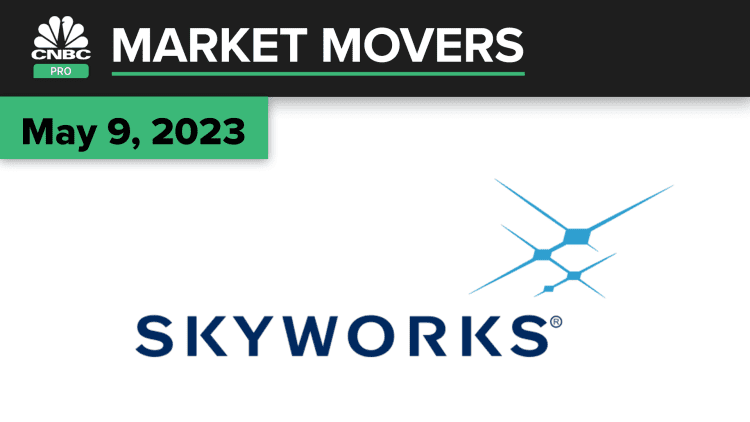
Stocks closed lower Tuesday as investors readied for key inflation reports due later in the week and progress on the U.S. debt limit.
The S&P 500 pulled back by 0.46% to 4,119.17, and the Nasdaq Composite dropped 0.6% to 12,179.55. The Dow Jones Industrial Average traded flat with a 0.17% decline at 33,561.81.
President Joe Biden is hosting a meeting with House Speaker Kevin McCarthy Tuesday afternoon. Both sides have cautioned that the meeting is simply a chance to have a conversation, with definitive progress on raising the debt limit unlikely. Biden and McCarthy remain at odds over the House Speaker's demand that a deal on raising the debt ceiling be tied to spending cuts. Biden maintains raising the debt ceiling is non-negotiable.
Treasury Secretary Janet Yellen said on CNBC Monday afternoon that failing to raise the debt ceiling would be an "economic catastrophe," and regulators are not close to any policies that would limit short-selling regional bank stocks.
"Wall Street is hesitant to take on any major positions until we find out the outcome to both debt ceiling talks at the White House and on whether or not inflation is proving to be very sticky," said Ed Moya, senior market analyst at Oanda. "No one is doubting that bank stress won't be going away as lending conditions continue to tighten, reserve requirements will go up, which will lead to less loans and a weaker economy."
PacWest shares closed up 2.4%, after a volatile session. The SPDR S&P Regional Banking ETF (KRE) ended the day down less than 1%, amid ongoing concerns in the banking sector.
Lucid, PayPal and Skyworks closed down after their quarterly reports were released. Meanwhile, Palantir jumped 23% on a strong earnings report and upbeat guidance.
Traders are also looking ahead to April's consumer price index report slated for Wednesday and the producer price index on Thursday for the newest data on the path of inflation. Economists polled by Dow Jones expect inflation to have increased 0.4% month-over-month in April, and 5% year-over-year. Core prices, which exclude volatile food and energy components, are expected to have climbed 0.4%.


